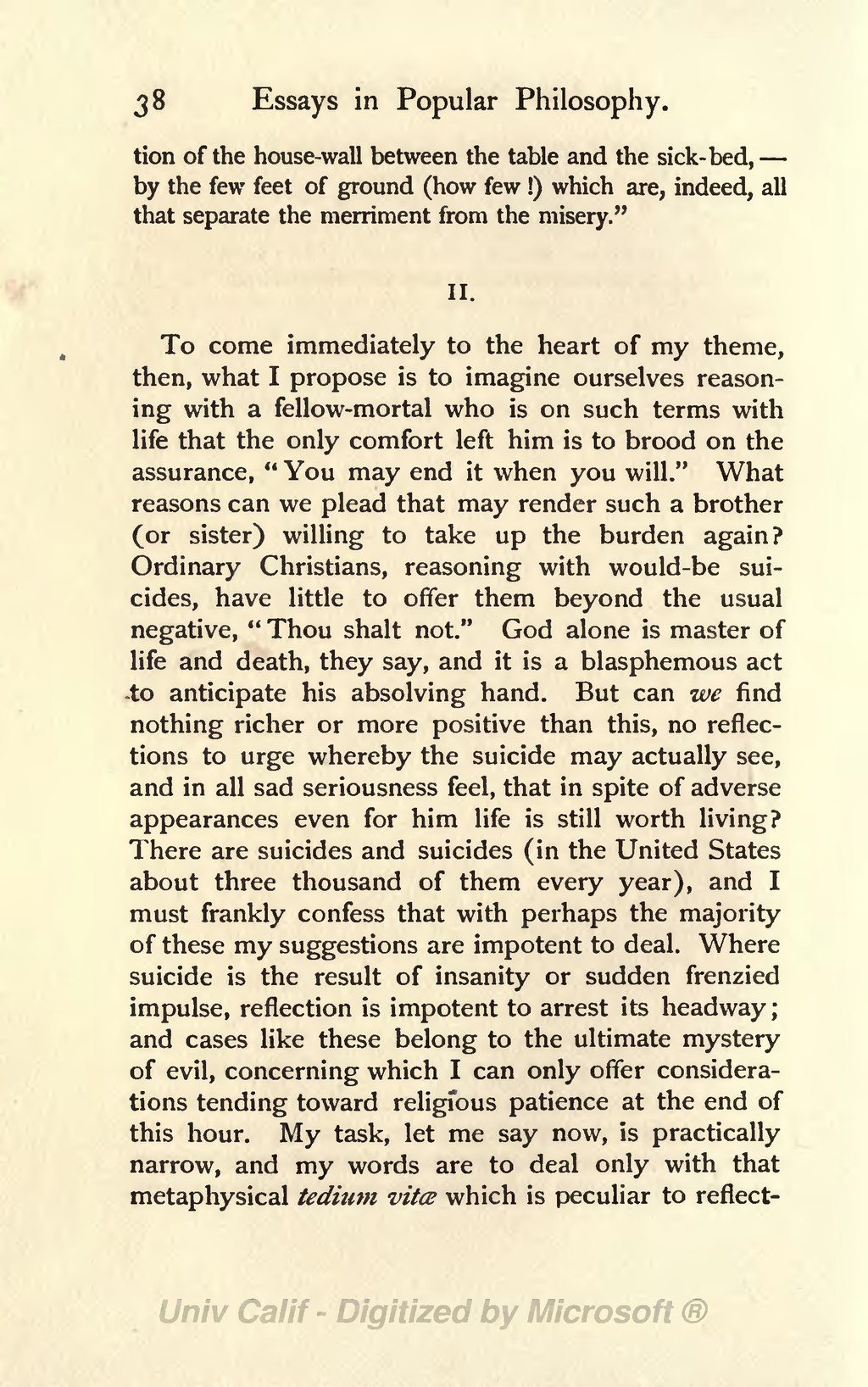of the house-wall between the table and the sick-bed,—by the few feet of ground (how few!) which are, indeed, all that separate the merriment from the misery.”
II.
To come immediately to the heart of my theme, then, what I propose is to imagine ourselves reasoning with a fellow-mortal who is on such terms with life that the only comfort left him is to brood on the assurance, “You may end it when you will.” What reasons can we plead that may render such a brother (or sister) willing to take up the burden again? Ordinary Christians, reasoning with would-be suicides, have little to offer them beyond the usual negative, “Thou shalt not.” God alone is master of life and death, they say, and it is a blasphemous act to anticipate his absolving hand. But can we find nothing richer or more positive than this, no reflections to urge whereby the suicide may actually see, and in all sad seriousness feel, that in spite of adverse appearances even for him life is still worth living? There are suicides and suicides (in the United States about three thousand of them every year), and I must frankly confess that with perhaps the majority of these my suggestions are impotent to deal. Where suicide is the result of insanity or sudden frenzied impulse, reflection is impotent to arrest its headway; and cases like these belong to the ultimate mystery of evil, concerning which I can only offer considerations tending toward religious patience at the end of this hour. My task, let me say now, is practically narrow, and my words are to deal only with that metaphysical tedium vitæ which is peculiar to reflecting
